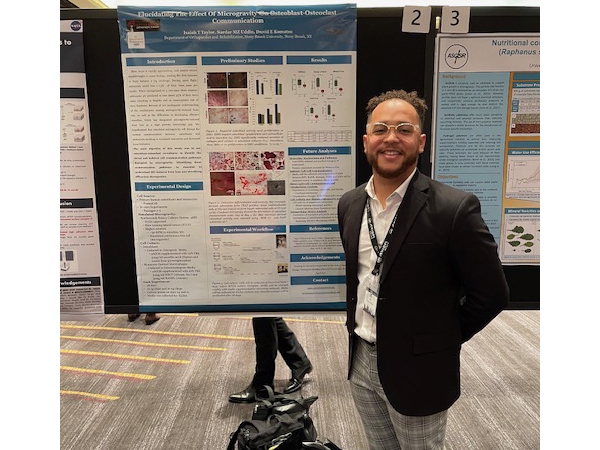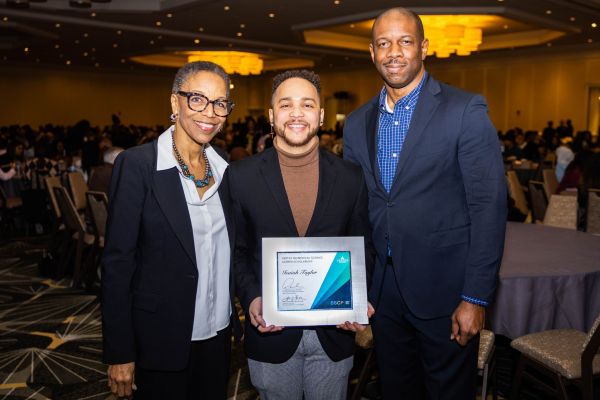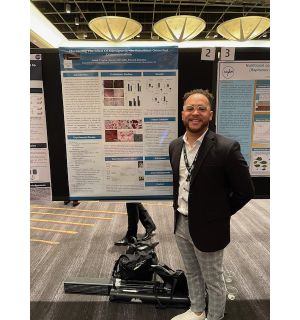Voices Ringing
Meet Isaiah Taylor '14: Leading a Diverse Future for STEM Research

“Stand on the shoulders of giants” is a common phrase to anyone who is preparing to defend research or a thesis to earn an advanced degree. For Isaiah Taylor ‘14, that type of foundational support extends beyond his doctoral studies and into the future of the next generation of learners from underrepresented backgrounds.
Taylor researches the effects of microgravity on bone cells, working towards a PhD in molecular and cellular pharmacology at Stony Brook University. In addition to the challenges of conducting advanced research and maintaining a work/life balance, Taylor is one of the leading voices for diversity and inclusion on campus. Stony Brook’s most recent report says that approximately 12% of all of its students are African American, and Taylor says he is the only one in his PhD program.

As president of Stony Brook’s Black Graduate Student Organization, Taylor leads the way in rebuilding the group’s impact on campus as it relaunched this past fall after the COVID-19 pandemic derailed much of campus life. He also works part-time for the DICE (Diversity, Intercultural and Community Engagement) Program in Stony Brook’s Division of Student Affairs. According to their website, DICE’s mission is to “provide programs to maintain an all-inclusive campus community where diversity is valued and celebrated, and where a positive campus climate is promoted. The office helps to foster a campus environment that is welcoming, nurturing, and supportive for all members of the university.” Taylor also served as peer mentor in the Office of Multicultural Affairs as an undergraduate at the University of Dayton.
Building relationships and providing an example for young learners of all races is of the utmost importance to Taylor after experiencing the impact a mentor can have.
“About two summers ago, I got to participate in this program called Scientists in Mentoring. It was a diverse and inclusive program, and I got a mentor from Johnson & Johnson who told me about her path. She helped me figure out where I want to go after graduation. That program helped me realize that no matter where I’m working, I still want to be involved in some sort of diversity and inclusion program. There should be more people of color in graduate schools and professional schools. It’s very important for development starting from a young age. A lot of schools are predominately white institutions, so having representation is important because kids now and in college want to see an example. If there is no representation in these roles, maybe they get discouraged or have impostor syndrome. It’s important for us growing up and even in college to see other people do it.”

Providing opportunities to build a network of peers can lighten the burden of managing difficult classes, long days of experiments and research in the labs, and the stresses of daily life. Taylor says his time playing sports and participating in clubs as a student at Carroll provided him with a sense of belonging as a teenager and provided a sense of belonging in the community. Taylor also carries the academic and spiritual foundations of a Carroll education with him to this day. He credits his difficult course load from high school with giving him an edge once he arrived in college. His faith is reflected in the work he does outside the research labs to bring about positive change and a more just society. Ensuring that diversity and representation are present in daily life are critical pillars of Catholic Social Teaching, and Taylor says that all institutions, including the church, must continue progressing with those values at the forefront of their missions.
Editor's Note: This article originally appeared in the Spring 2024 Edition of Reflections. Click here to read the rest of the publication.


